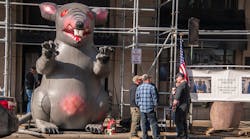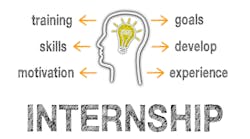COMMENTARY / ANALYSIS
The new Biden-era National Labor Relations Board (NLRB) is already showing signs of the sea change in labor relations law that will be taking place over the next few years as it serves as another cog in the administration’s pro-union machine.
The President began to assert his dominance over the board even before his inaugural ceremony ended on Jan. 20, when his staff demanded the resignation of NLRB General Counsel Peter Robb. When Robb refused, he was fired, which came as a surprise because he had been nominated by President Trump and confirmed by the Senate to a four-year term which had not yet expired. Biden’s staff believed that was not sufficient to protect his employment and so far, one court challenge has been rebuffed.
Since then, Jennifer Abruzzo was nominated by Biden, confirmed by the Senate and sworn in to serve as the board’s new general counsel in July. Before taking her post at the NLRB, she had been special counsel for strategic initiatives for the Communications Workers of America and had served on Biden’s transition team for labor agencies.
In addition, the five-member board lost its Republican majority on Aug. 31 when the Senate confirmed union lawyers Gwynne Wilcox and David Prouty to serve as board members, one of them replacing a retiring Republican member and the other one filling what had been a vacant seat.
But even before Abruzzo was sworn in, change was already evident, at least when it comes to rodential displays. One of former counsel Robb’s pet peeves, the giant inflatable rat named Scabby, was granted a reprieve by the then Republican-majority board. Robb had conceived a solid dislike of Scabby and actively sought his demise, but it was not to be. You can expect to see Scabby joining picket lines and union demonstrations in the future throughout the country because there is actually a full mischief of these inflatable rats (which is what a group of these rodents are termed) that are rented out by a supplier in the Midwest. You could even rent one for your next party, if you felt so inclined.
Throughout his presidential campaign and since taking office, Biden has repeatedly made it clear that he wants his administration to promote union interests at every opportunity. That includes backing a major omnibus labor bill in Congress that seeks to slant the table in favor of unions. It is called the Protecting the Right to Organize Act (PRO Act), and already has been passed by the House but currently is hung up in the Senate.
In April, the President also assembled a senior level policymaking group called the Task Force on Worker Organizing and Empowerment, which is chaired by Vice President Kamala Harris and Labor Secretary Marty Walsh and is made up of other cabinet officers and top White House advisors. Slated to report back to Biden this October, the group is charged with finding ways to implement administratively through the federal bureaucracy many of the same pro-union ideas that are contained in the stalled PRO Act.
In the meantime, new NLRB General Counsel Abruzzo has already given her troops their marching orders to help the board reverse course. The NLRB works differently than most of the other federal agencies. For the most part, it does not make new labor law through rulemaking proceedings and policy pronouncements. Instead, regional NLRB directors send individual case disputes to the board for it to resolve, which then creates new policy by establishing precedents.
Under the NLRB hierarchy, it is the responsibility of the general counsel to tell regional directors which cases to bring to the full board, and Abruzzo did this recently in a 10-page memo to them in which she slams the Trump-era board for overruling earlier Obama-era legal precedents that, in her view, “struck an appropriate balance between the rights of workers and the obligations of unions and employers.”
Expect to see future changes take place in the legality of employer handbook policies; expansion of what is considered to be protected concerted activity under labor law, including the use of company e-mail and other internal communications; allowing greater employee and union representative access to employer property; and reintroducing restrictions on the ability of workers to be classified as independent contractors and expanding the definition of joint employer status to allow organizing of franchise operations, like McDonalds.
With the Labor Department’s new pro-union stance, which recently resulted in its formal withdrawal of the Trump Administration’s limiting of joint employer status, expect a busy year ahead on the labor law front originating elsewhere in the federal government. You also need to keep your eye out for state and local government actions where activist Democrats have taken control.




